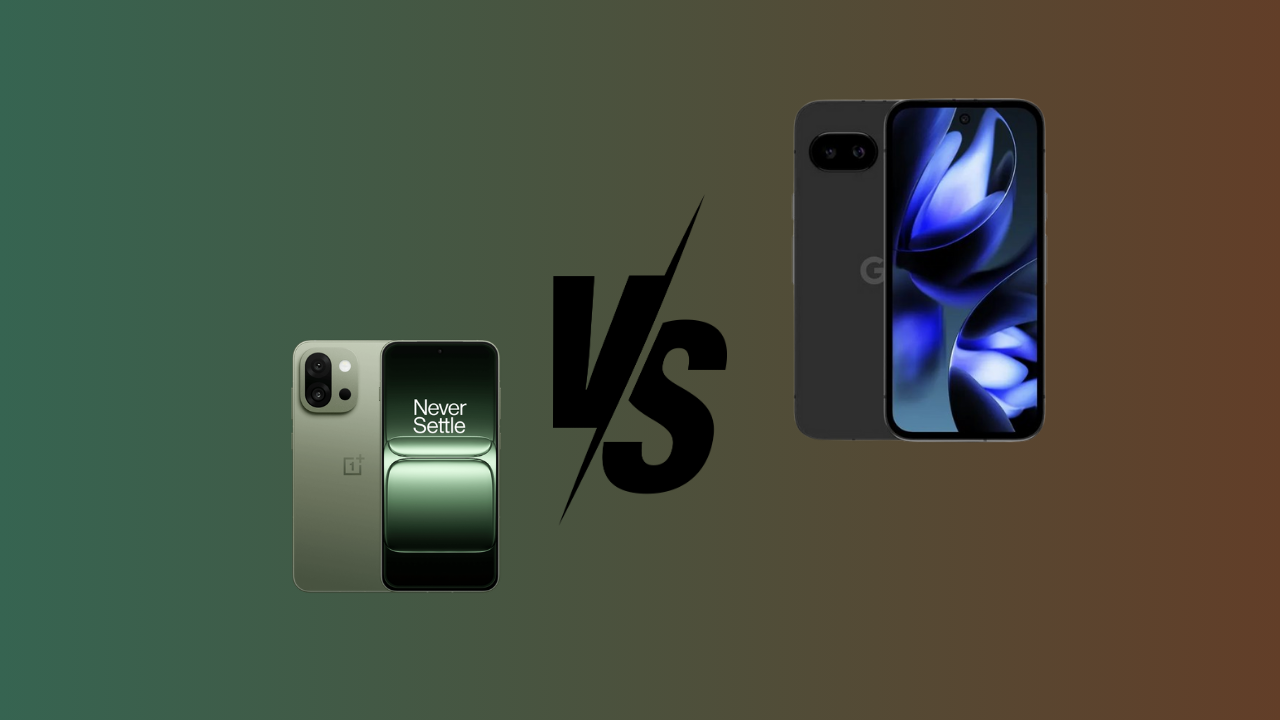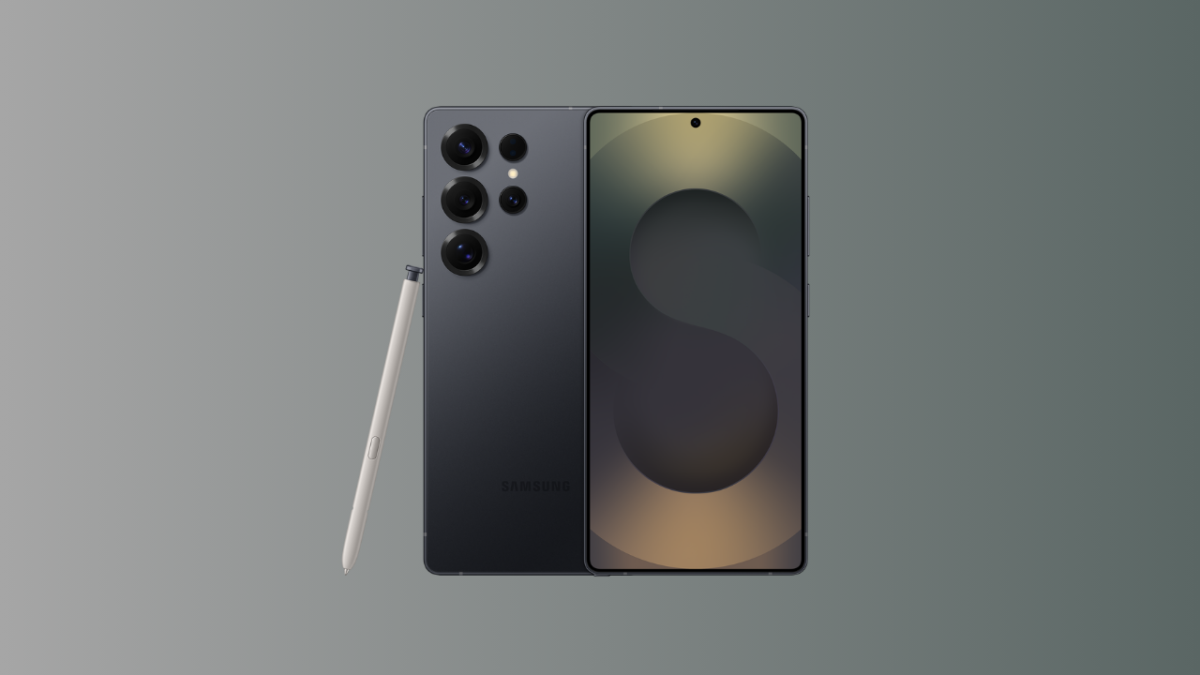The battle of compact smartphones in 2025 just got interesting. With OnePlus 13s vs Pixel 9a heating up the mid-premium market, users are now spoilt for choice between performance and camera excellence. Both smartphones bring a compelling package, but which one truly delivers where it matters? Let’s dive into the detailed comparison and see who wins in the battle of OnePlus 13s vs Pixel 9a.
| Category | OnePlus 13s | Pixel 9a |
|---|---|---|
| Performance | ✅ Top-tier Snapdragon 8 Gen 3 (Elite) | ⚠️ Mid-range Tensor G4, smooth for daily use but not for gaming |
| Battery Life | ✅ 5,880mAh with 80W fast charging | ✅ 5,100mAh, good endurance but slower charging & no charger in the box |
| Build & Design | ✅ Premium metal frame, textured back, compact form | ✅ Aluminum frame with plastic back, iPhone-like design |
| Display | ✅ 1.5K Fluid AMOLED, 120Hz LTPO, Dolby Vision | ✅ OLED, 120Hz, HDR10+ with 2700 nits brightness |
| Camera | ⚠️ Dual 50MP (average results, lacks finesse) | ✅ 48MP + 13MP with superior low-light, color, and stabilization |
| Software Experience | ✅ OxygenOS 15 (4+6 years support) with customization | ✅ Stock Android 15 (7 years of OS updates, 5 years security) |
| Unique Features | ✅ Customizable Plus Key, cooling chamber, new OnePlus Dialer with translation | ✅ Pixel Shift, Best Take, real-time translation, clean UI |
| Price Value | ✅ Good value at ₹50,000 | ✅ Launches at ₹49,999, drops to ₹30K during sales (best value for camera) |
| Best For | 🏆 Users who prioritize speed, design, and multimedia | 🏆 Users who value camera quality and clean Android experience |
Design and Build Quality: Industrial Metal vs Minimalist Plastic
In the OnePlus 13s vs Pixel 9a design face-off, both phones take a different path. The OnePlus 13s boasts a metal frame with a unique textured back, giving it a stylish yet grippy feel. Its compact size and iPhone 16 Mini-like borders make it one of the most handy Android phones in 2025.
The Pixel 9a, on the other hand, features an aluminum frame with a plastic back. While it feels premium, the use of plastic is a cost-cutting move. It maintains Google’s signature design with the camera bar but feels a bit bulkier than the OnePlus.
Verdict: If design and in-hand feel matter to you in the OnePlus 13s vs Pixel 9a debate, OnePlus 13s takes the lead.
Display: Rich Colors vs Peak Brightness
In the OnePlus 13s vs Pixel 9a display comparison, both phones offer OLED panels with a 120Hz refresh rate, but implementation differs.
The OnePlus 13s sports a 6.32-inch Fluid LTPO AMOLED with 1.5K resolution and Dolby Vision support. It’s immersive, vivid, and smooth with adaptive refresh from 1Hz to 120Hz.
The Pixel 9a also brings a 6.3-inch OLED panel, now finally upgraded to 120Hz. It shines with HDR10+ support and an impressive peak brightness of 2700 nits, beating the OnePlus in outdoor visibility. However, Gorilla Glass 3 protection and thick bezels feel dated.
Verdict: Pixel 9a wins on brightness, but the OnePlus 13s wins in fluidity and aesthetics—another close call in OnePlus 13s vs Pixel 9a.
Performance: Raw Power vs Stable Optimization
Let’s talk performance in this OnePlus 13s vs Pixel 9a comparison.
The OnePlus 13s is powered by the Snapdragon 8 Gen 3 (Elite) with an AnTuTu score close to 2 million. It handles BGMI at 90fps with proper heat management via a large vapor cooling chamber.
In contrast, the Pixel 9a runs on the Google Tensor G4—smooth for daily tasks but not meant for intense gaming. Its AnTuTu score of ~1 million is decent but falls short for power users.
Verdict: In terms of raw performance, OnePlus 13s clearly outclasses its opponent in the OnePlus 13s vs Pixel 9a battle.
Software: Clean Android vs Refined OxygenOS
In the OnePlus 13s vs Pixel 9a software comparison, it’s a matter of preference.
Pixel 9a offers a stock Android 15 experience with 7 years of OS updates—clean, smooth, and free of bloatware.
OnePlus 13s ships with OxygenOS 15, now closer to its pre-Oppo roots, offering 4 years of OS and 6 years of security updates. It includes handy features like the Plus Key—a customizable button to activate Mind Space, open apps, or control system features.
Verdict: If stock Android is your thing, go Pixel. But if customization matters, OnePlus 13s has the edge in this round of OnePlus 13s vs Pixel 9a.
Camera: Google’s Magic vs OnePlus’s Miss
The camera battle in OnePlus 13s vs Pixel 9a is perhaps the most talked-about segment—and rightly so. With users expecting flagship-level performance around the ₹50,000 price point, camera capabilities can make or break the deal.
📷 Pixel 9a Camera Specifications
| Specification | Details |
|---|---|
| Rear Camera | 48 MP (f/1.7, Wide Angle) + 13 MP (f/2.2, Ultra Wide) |
| Auto Focus | Yes |
| Camera Features | Pixel Shift, Ultra HDR, Panorama, Best Take |
| Rear Video Recording | 4K @ 30fps (UHD), 1080p @ 30fps (FHD) |
| Flash | Yes, Dual LED |
| Front Camera | 13 MP (f/2.2, Ultra Wide), Punch Hole |
| Front Video Recording | 4K @ 30fps (UHD), 1080p @ 30fps (FHD) |
The Pixel 9a continues Google’s legendary camera legacy, delivering:
- Natural skin tones
- Superb dynamic range
- Excellent video stabilization
- Impressive low-light performance
Google’s computational photography once again proves that software can outperform even the best hardware setups when optimized well. Whether it’s night shots, portraits, or videos, the Pixel 9a simply excels in every condition.
📷 OnePlus 13s Camera Specifications
| Category | Details |
|---|---|
| Rear Camera (Main) | 50 MP Wide-Angle (Sony LYT-700) Sensor Size: 1/1.56″ Pixel Size: 1.0 µm Lens: 6P OIS + EIS Field of View: 84° |
| Rear Camera (Tele) | 50 MP Telephoto (Samsung S5KJN5) 2X Optical Zoom Sensor Size: 1/2.75″ Pixel Size: 0.64 µm Lens: 5P EIS + Autofocus |
| Camera Features | Laser Focus, HDR, Panorama, Color Spectrum Sensor |
| Rear Video Recording | 4K @ 30/60 fps (UHD), 1080p @ 30/60 fps (FHD) |
| Flash | LED Flash |
| Front Camera | 32 MP Wide-Angle Aperture: ƒ/2.4 Sensor Size: 1/3.1″ Pixel Size: 0.7 µm Lens: 5P EIS Field of View: 90° |
| Front Camera Features | Punch-Hole, Screen Flash |
| Front Video Recording | 4K @ 30 fps (UHD), 1080p @ 30 fps (FHD) |
On paper, the OnePlus 13s looks promising with its dual 50MP setup (main + 2X telephoto). However, the actual results are mixed. While detail is decent in good lighting, color reproduction often lacks consistency. Low-light performance is average, and the dynamic range doesn’t match the standards set by the Pixel 9a.
Moreover, despite offering a 32MP selfie camera, the front shooter also struggles with overexposure and noise in challenging conditions.
In this camera-centric showdown of OnePlus 13s vs Pixel 9a, the winner is clear:
🔥 Pixel 9a outperforms the OnePlus 13s with better image processing, more reliable results, and class-leading video stabilization—especially under ₹50,000.
OnePlus seems to have lost its photographic charm post the Oppo merger, while Google continues to refine and dominate with software-first photography.
Whether you’re capturing memories, vlogging, or taking low-light shots—Pixel 9a is the better camera phone in the OnePlus 13s vs Pixel 9a debate.


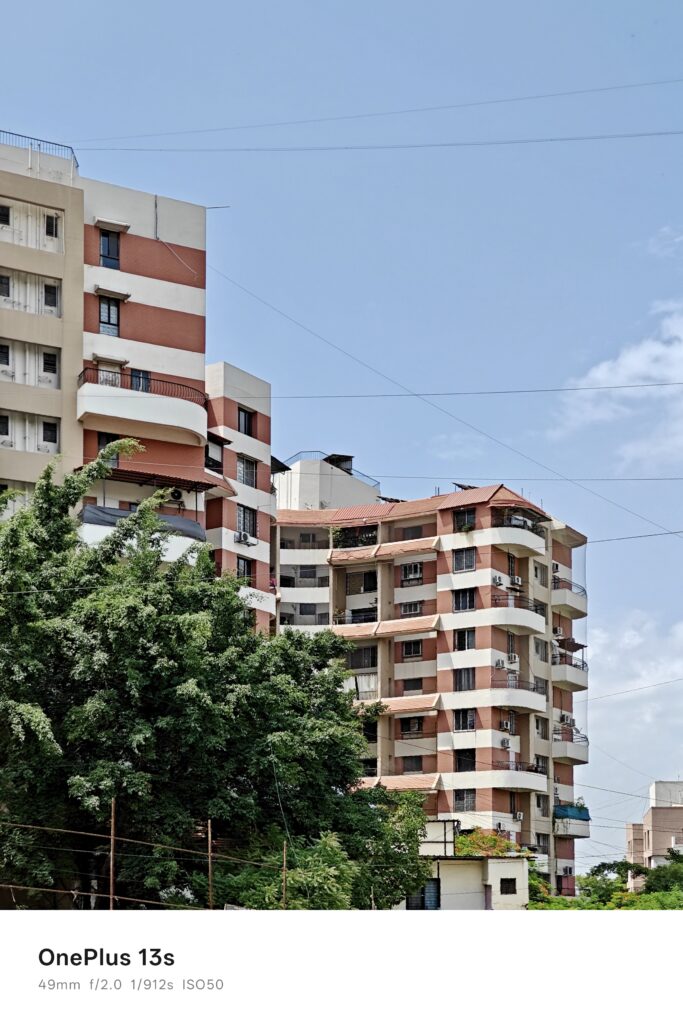
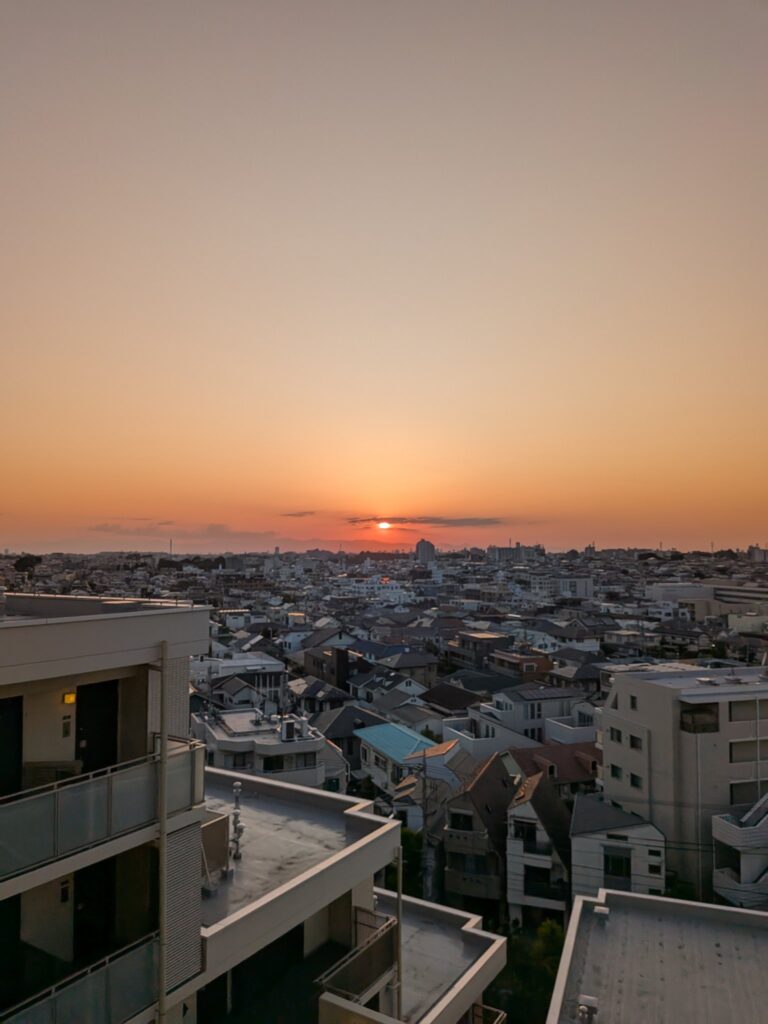
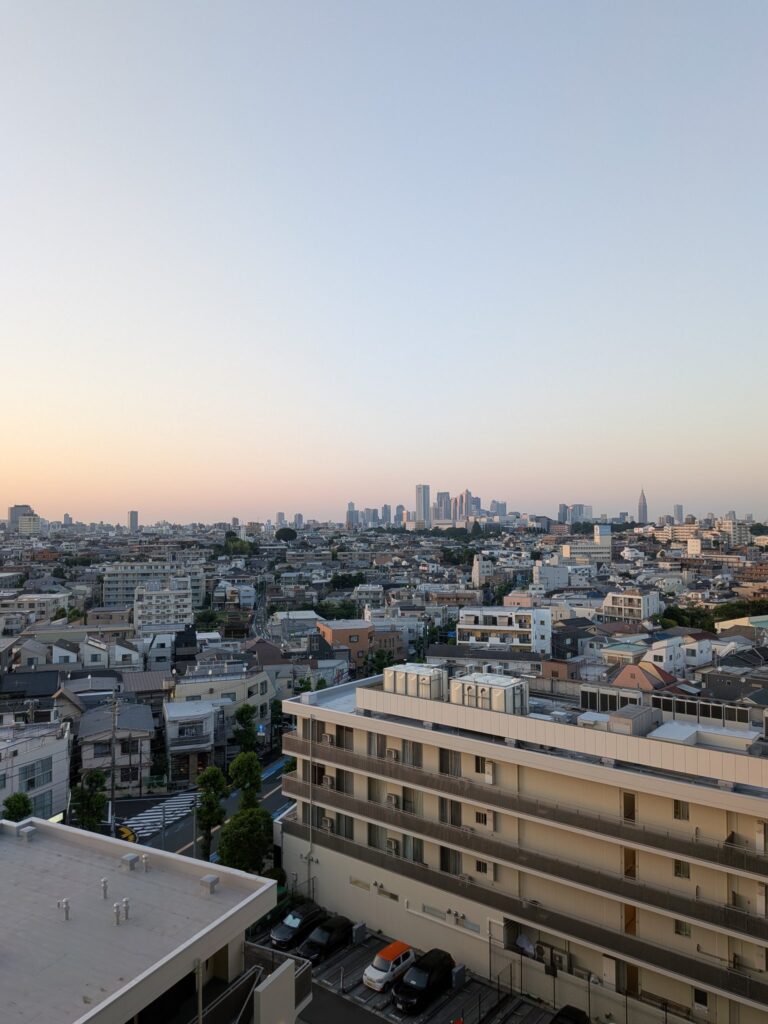
Battery Life: Big Numbers, Real Results
Both devices come with impressive batteries, but how do they fare in real-world OnePlus 13s vs Pixel 9a use?
The OnePlus 13s features a 5,880mAh battery with 80W fast charging—7 hours of screen-on time is achievable. However, there’s no wireless charging.
The Pixel 9a carries a 5,100mAh battery and charges slower—and there’s no charger in the box. But it lasts a full day easily.
Verdict: For speed and endurance, OnePlus 13s wins this OnePlus 13s vs Pixel 9a round.
Extra Features: Plus Key vs Pixel Shift
OnePlus 13s introduces the Plus Key, a versatile button for multitasking, productivity, and smart automation.
Pixel 9a counters with Pixel Shift, Ultra HDR, and real-time translation baked into Android.
Verdict: Both bring innovative extras, but the OnePlus 13s feels more versatile in the OnePlus 13s vs Pixel 9a comparison.
Pricing: Value or Vanity?
In the OnePlus 13s vs Pixel 9a price debate:
- OnePlus 13s is priced around ₹50,000.
- Pixel 9a launches at ₹49,999 but may drop significantly during sales—making it a killer deal under ₹30,000.
Verdict: If you’re buying at launch, OnePlus 13s gives more value. But during sales, Pixel 9a might become unbeatable.
Final Thought:
The OnePlus 13s vs Pixel 9a showdown isn’t about who’s better on paper—it’s about your priorities. Pick the OnePlus 13s for performance and premium design, or the Pixel 9a for camera quality and long-term software bliss.

